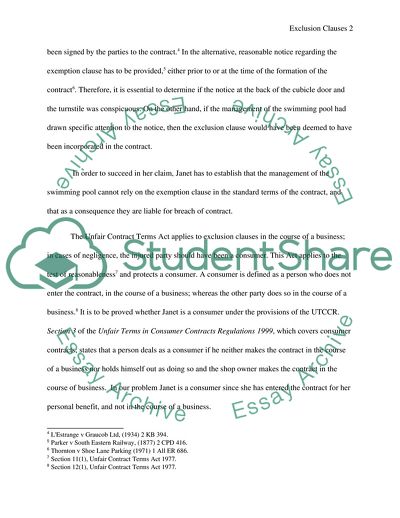Cite this document
(Exclusion Clauses in Contracts Report Example | Topics and Well Written Essays - 1000 words, n.d.)
Exclusion Clauses in Contracts Report Example | Topics and Well Written Essays - 1000 words. https://studentshare.org/law/1732286-topic-attached-contract-law
Exclusion Clauses in Contracts Report Example | Topics and Well Written Essays - 1000 words. https://studentshare.org/law/1732286-topic-attached-contract-law
(Exclusion Clauses in Contracts Report Example | Topics and Well Written Essays - 1000 Words)
Exclusion Clauses in Contracts Report Example | Topics and Well Written Essays - 1000 Words. https://studentshare.org/law/1732286-topic-attached-contract-law.
Exclusion Clauses in Contracts Report Example | Topics and Well Written Essays - 1000 Words. https://studentshare.org/law/1732286-topic-attached-contract-law.
“Exclusion Clauses in Contracts Report Example | Topics and Well Written Essays - 1000 Words”. https://studentshare.org/law/1732286-topic-attached-contract-law.


